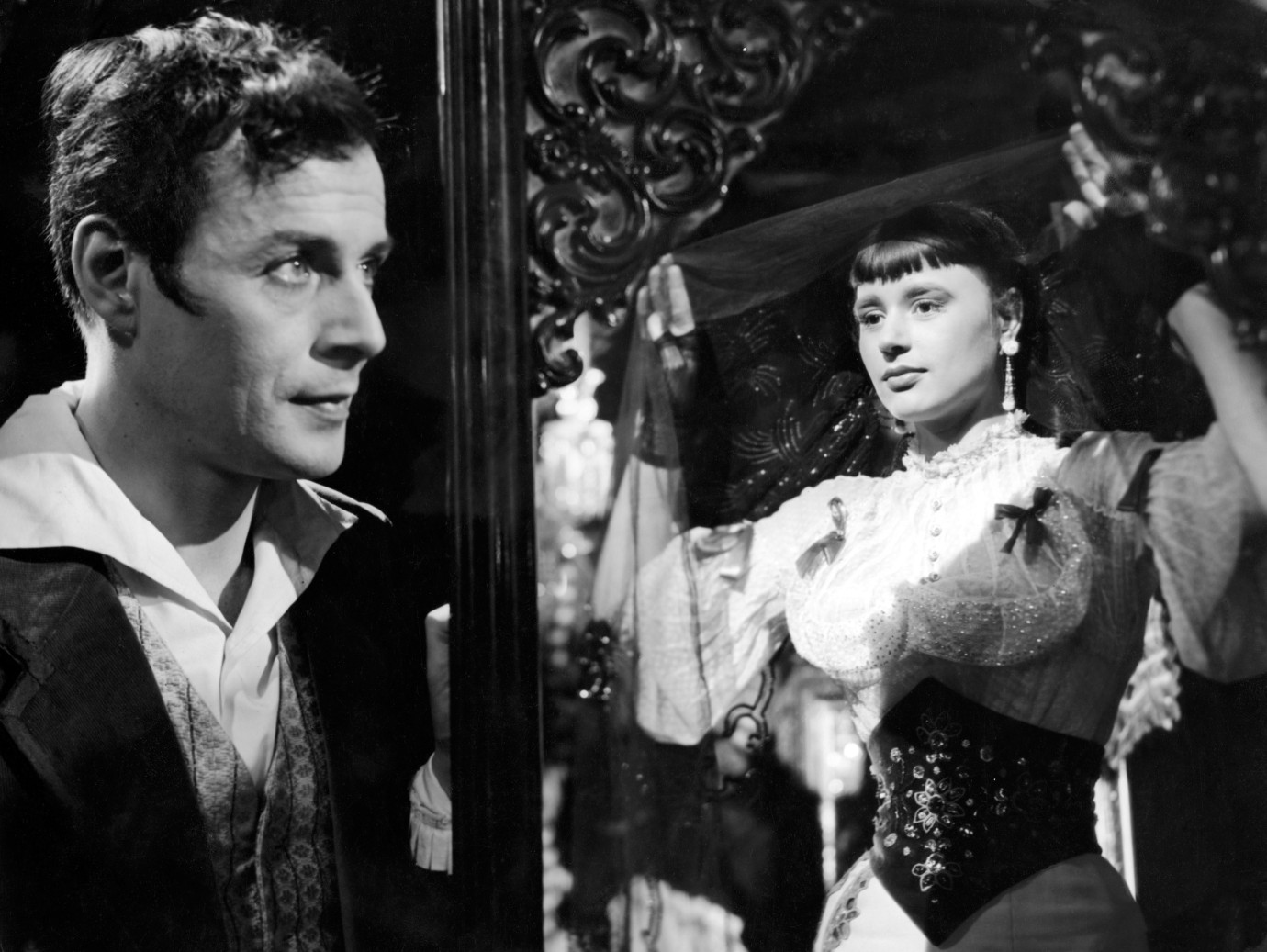
Gycklarnas afton | Sawdust and Tinsel | Abend der Gaukler by Ingmar Bergman
SWE 1953, Retrospective

Hasse Ekman, Harriet Andersson
Gycklarnas afton | Sawdust and Tinsel | Abend der Gaukler by Ingmar Bergman
SWE 1953, Retrospective
At the break of dawn a tawdry travelling circus makes its way through the Swedish countryside, a silhouette against the grey sky. The circus people have no money, nothing to eat, and had to leave their costumes in payment at their last stopover. Circus director Albert (Åke Grönberg) has an idea: Albert and his pretty mistress Anne (Harriet Andersson) will go into town and borrow costumes from the theatre. The director insults them, however, and compares theatre to art and circus to artifice. Albert, feeling old and exhausted, wants to return to his wife, but when he sees her bourgeois life he can only feel emptiness. Anne lets herself be seduced by the actor Frans (Hasse Ekman) for the promise of a worthless amulet, but she can’t bring herself to leave the troupe. Bergman shows the constant humiliations of the circus people, but also their love of this life.
GYCKLARNAS AFTON is visually one of Bergman’s most impressive films. The initial flashback when Alma, the wife of the white clown Frost (Anders Ek), bathes in the sea with a group of soldiers is reminiscent of early Russian films: you hear modernistic music and the thundering cannons, but don’t hear what is spoken when the camera fixes on individual faces of the hooting soldiers. There is no end to the striking images: reflections, close-ups of the eyes, Albert fighting in the circus ring like a blinded animal.
GYCKLARNAS AFTON is visually one of Bergman’s most impressive films. The initial flashback when Alma, the wife of the white clown Frost (Anders Ek), bathes in the sea with a group of soldiers is reminiscent of early Russian films: you hear modernistic music and the thundering cannons, but don’t hear what is spoken when the camera fixes on individual faces of the hooting soldiers. There is no end to the striking images: reflections, close-ups of the eyes, Albert fighting in the circus ring like a blinded animal.